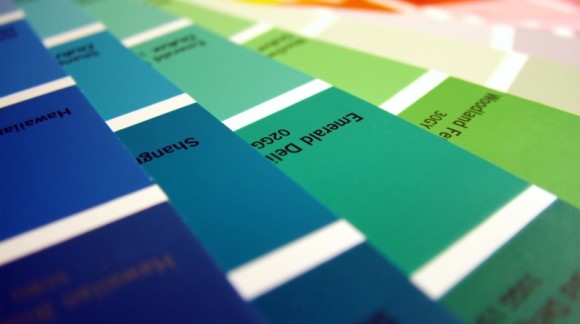How to Pick a Paint Color: The Science Behind Color

Choosing a Paint Color for Your Home
One of the most important decisions you will make when decorating your home is color choice. What color do you want to paint the kitchen? Will you grow tired of this blue? Is this red too vibrant? The best interior decorators don’t pick paint colors based on the color of their couch. Instead, they choose a color based on the psychology behind paint color and on the atmosphere they hope to invoke in the room.
Color affects your mood. Blame it on our social and cultural associations, but we have specific reactions when stimulated by color. Therefore, it is important to consider the mood-altering characteristics of a color before slapping a coat on your walls.
Do you want your kitchen to invoke a lively atmosphere that uplifts spirits? Do you want to turn your bathroom into a relaxing space reminiscent of a five-star spa resort?
Here are two great and helpful YouTube videos:
- How to Choose a Paint Color – Mistakes People Make When Choosing a Paint Color
- How to Choose Paint Colors
The list below breaks down some of the most popular colors and explains how they make us feel.
Red
Red is a very stimulating color. It makes you feel passionate, romantic and full of energy. Use a deeper hue of red in a bedroom to keep the romance alive, or utilize red’s hunger-inducing effects by accenting the walls in a dining room or kitchenette.
Blue
The opposite of red, blue evokes soothing and tranquil reactions. It is best to use a lighter blue for the most calming effects. Blue is a great color to use for a room that you want to relax in, but not sleep in. The color blue has been shown to calm learners, and is recommended to balance those who may have behavioral issues. Try tones of blue in a bathroom or study.
Yellow
Yellow is a surprisingly powerful color. In small doses or accents, it is the perfect agent to produce an energetic and optimistic atmosphere. Like sunshine, it fills a room with brightness and cheer. But beware, too much exposure to yellow has been linked to crying babies and flaring tempers. Accent a room you wish to fill with energy, but keep it out of the nursery and bedroom.
Green
Green is one of the most popular colors for interior decorating because of its natural ability to invoke calmness. Green creates a relaxing atmosphere for people wishing to escape the hustle and bustle of their routine life. Lighten up the spaces where you will have most interactions with guests, such as the living room or kitchen.
Brown
Reminiscent of nature, brown is earthy. It is warm and welcoming, although men seem to have a stronger connection to the color. It is best to use this color in a masculine area of the home, and balance its deep hues with pops of lighter accents and furnishings. To make brown more appropriate for a woman’s space, it can be mixed with pale pinks and greens for a “Mother Nature” feeling.
White
White is pure, untouched, fresh and clean. It can make spaces appear larger and refreshing. White is a great color to use in bedrooms and bathrooms, as it can be paired with an assortment of primary colors, and is gender neutral. The only problem with too much white is the upkeep. It is easily tainted by dirty fingerprints and scuff marks, so it must be washed and repainted frequently.
Before your next home improvement project, give some thought to your color scheme. Your home should make you feel safe and calm. It is a place of happiness and excitement. Determine the atmosphere you want to create in your home and let the colors do the work.
Check out more information about color psychology and the moods different colors invoke using this great resource.
Additional Resources
- Top Paint Colors for 2013, by Diyhomedesignideas
- Choosing Color, by Better Homes and Garden
- How to Pick Paint Colors – For Dummies, by Dummies.com
- Easy Home Decorating, by Easyhomedecorating.com
Videos
- How to Choose an Interior Paint Color for Your Home, by David Harris at ehow.com
- How to Choose a Full Color Palate for your Home, by Jullie Heiland at ehow.com
- How to Choose the Perfect Paint Color, by Elaina at Homedepot.com
- How to Choose Paint Colors for your Home, by Nadia Geller at Howdini.com
Education
- Where to Study Color, by ColorMatters
Books
- Choosing Colors, an Expert Choice for the Best Colors to Use in your Home, by KevinMcCloud, available inpaperback and hardcover
- Cant Fail Color Schemes, by Amy Wax at Amazon.com, available on paperback and in spiral bound
- 1001 Ideas for Color and Paint, by Emma Callery at Amazon.com
Apps
- 10 iPhone Apps to Help You Choose the Perfect Home Color, by Freshome.com
- House Beautiful’s 500 + Favorite Paint Colors, by Hearst Communications, INC., available on iTunes
- Digital Painting, Choosing Colors in Photoshop, by Artbistro.monster.com
